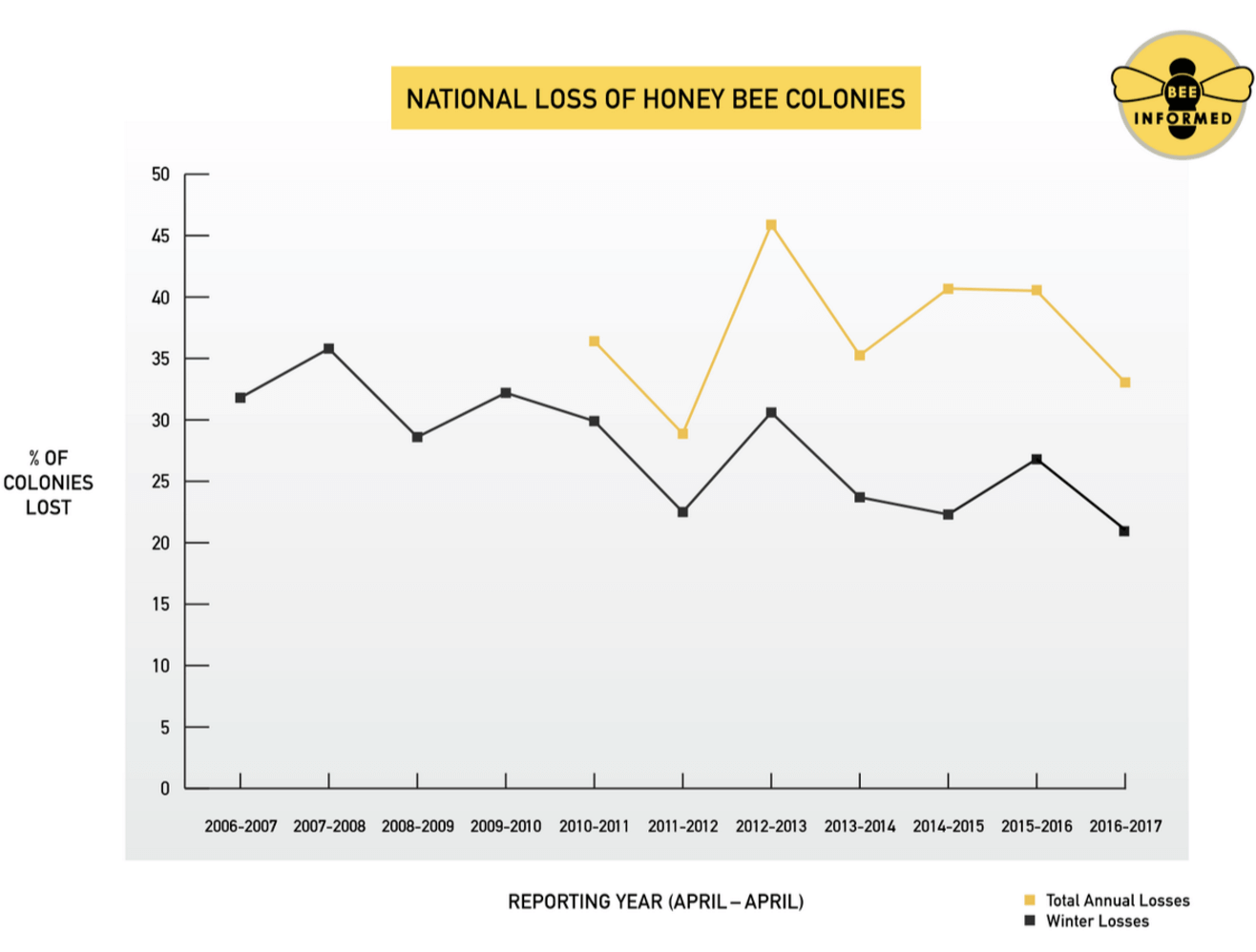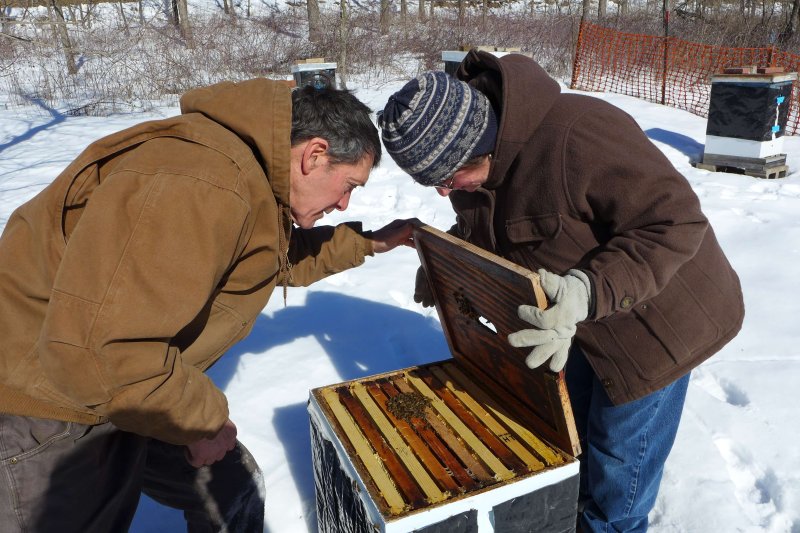Beekeepers across the United States lost 33 percent of their honey bee colonies during the year spanning April 2016 to April 2017, according to the latest preliminary results of an annual nationwide survey. Rates of both winter loss and summer loss—and consequently, total annual losses—improved compared with [2015-2016].
Total annual losses were the lowest since 2011-12, when the survey recorded less than 29 percent of colonies lost throughout the year. Winter losses were the lowest recorded since the survey began in 2006-07.
The survey, which asks both commercial and small-scale beekeepers to track the survival rates of their honey bee colonies, is conducted each year by the nonprofit Bee Informed Partnership in collaboration with the Apiary Inspectors of America. Survey results for this year and all previous years are publicly available on the Bee Informed website.
“While it is encouraging that losses are lower than in the past, I would stop short of calling this ‘good’ news,” said Dennis vanEngelsdorp, an assistant professor of entomology at the University of Maryland and project director for the Bee Informed Partnership. “Colony loss of more than 30 percent over the entire year is high. It’s hard to imagine any other agricultural sector being able to stay in business with such consistently high losses.”

The GLP aggregated and excerpted this blog/article to reflect the diversity of news, opinion, and analysis. Read full, original post: Nation’s Beekeepers Lost 33 Percent of Bees in 2016-17































